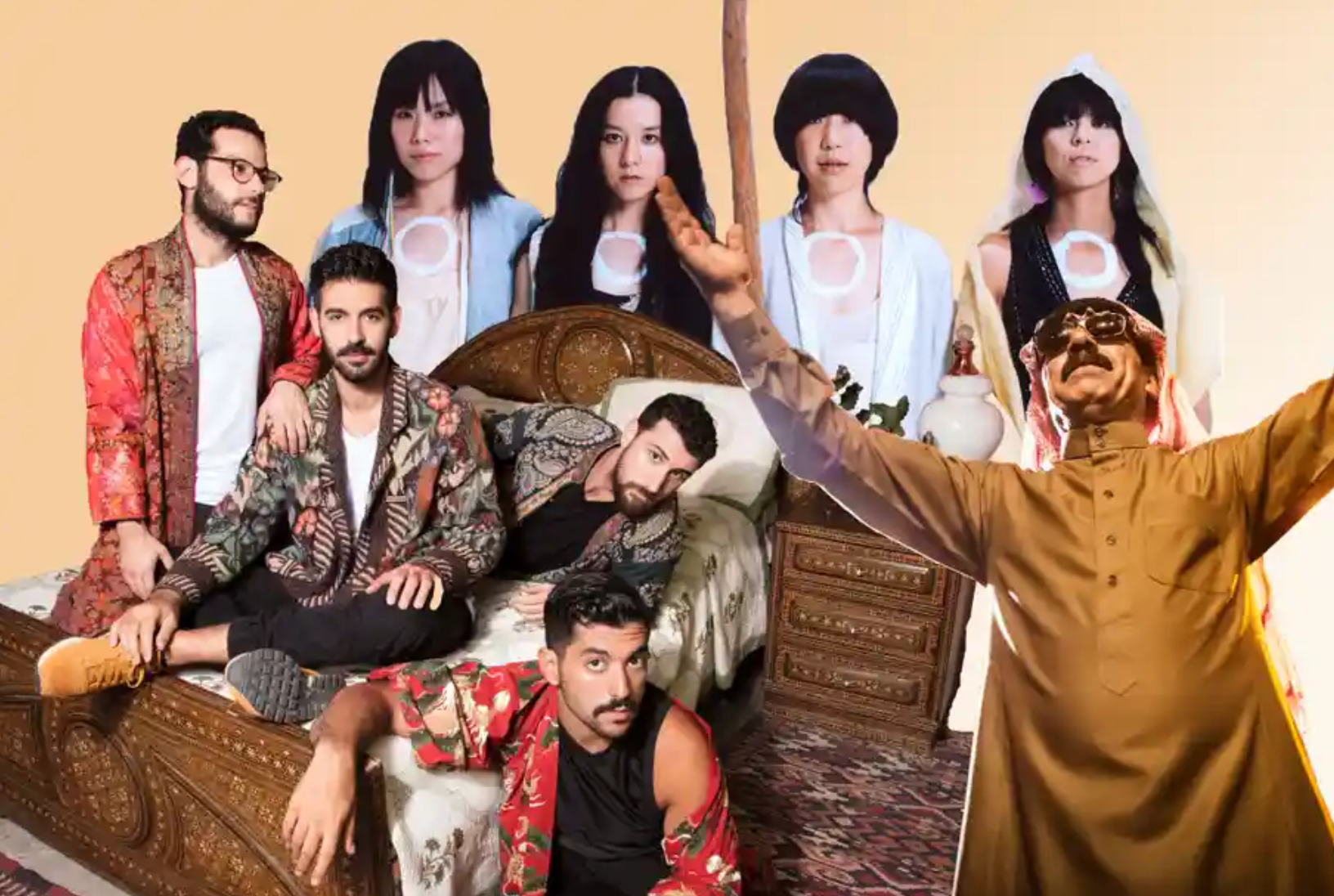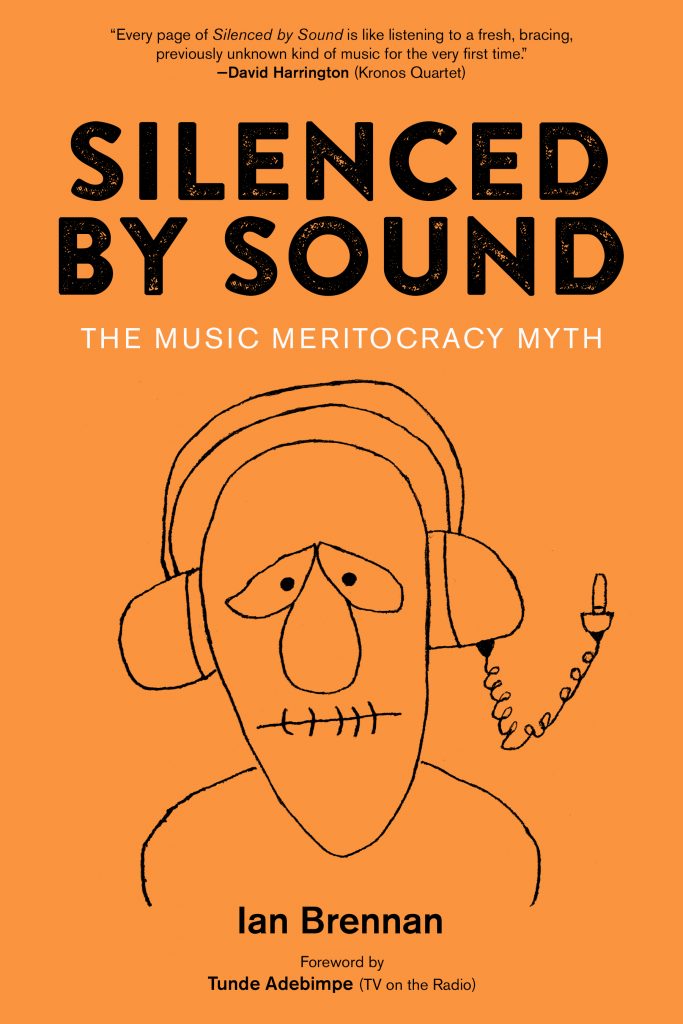By Ian Brennan
The Guardian
March 11th, 2021

Lebanon’s Mashrou’ Leila, Japan’s OOIOO and Syria’s Omar Souleyman are among artists from regions that have never been recognised by the Grammy’s global category. Composite: Tarek Moukaddem, Gonzales Photo/Christian Hjorth/PYMCA/Avalon/Universal Images Group via Getty Images
From the Godfathers of Arabic rap to the father of Ethio-jazz, Grammy-winning producer Ian Brennan guides a tour through global music’s greatest
This week I wrote about the glaring lack of international inclusivity in the Grammys’ newly redubbed global music (formerly world music) category.
In the category’s 38-year history, almost 80% of African nations have never had an artist nominated; no Middle Eastern or eastern European musician has ever won; every winner in the past eight years has been a repeat winner; and nearly two-thirds of the nominations have come from just six countries (the US, the UK, Brazil, Mali, South Africa, India). The situation shows little signs of improving.
Over the past decade, I’ve produced more than 30 albums from overlooked regions, languages and persecuted populations; one won a Grammy (Tinariwen), and three others have been nominated. My two latest books (How Music Dies, Silenced by Sound) detail inequity in the global music industry, and the vast numbers of people around the world who have been overlooked, despite being every bit as, if not more, talented than the stars who dominate the global mainstream.The Grammys have a major problem with global diversity. Lip service isn’t going to solve itIan BrennanRead more
Below are 14 of them, all from nations or regions that have never had a single artist receive a nomination in the Grammys’ global category, an award whose stated aim is to celebrate “excellence” in music versus sales or popularity. Many of these artists are legends in their home countries. That two have now died, and many others are of advanced age, speaks to the urgency of the matter.
Mulatu Astatke, Ethiopia
Mulatu is regarded as “the father of Ethio-jazz”. He has not been recognised by the Grammys, despite Ethiopia being the second most populous nation in Africa, and the 30-disc Éthiopiques series being pivotal in bringing “foreign” music to the western world from the late-1990s onwards. Active since 1963, the percussionist and multi-instrumentalist is now 77 and continues to perform today.
Entry point: Mulatu’s work balances funkiness with elegance in a way almost unheard anywhere else.https://www.youtube-nocookie.com/embed/_C9Fu_axkUQ?wmode=opaque&feature=oembed
Gurrumul, Australia
The blind singer Geoffrey Gurrumul Yunupingu, who died in 2017, performed ethereal music, singing in various Yolŋu languages. A multi-instrumentalist, he became the most commercially successful Indigenous Australian musician of all time and the first Indigenous-language artist to have an album reach No 1 on the Australian charts, winning nine Aria awards (Australia’s equivalent to the Grammys) and receiving 21 nominations, as well as the prestigious Australian music prize. As part of its mission, the Grammys’ global music category is responsible for representing pre-colonial Indigenous culture and languages throughout Oceania and in the Americas (outside of US and Canada, which are included in a separate American regional roots category) – but such a nomination has never occurred in the category’s history.
Entry point: Gurrumul’s songs reflect Australia’s homegrown genre of country music, and the huge part in that history played by Aboriginal and Torres Strait Islander people.https://www.youtube-nocookie.com/embed/MKC-Jd7KN64?wmode=opaque&feature=oembed
DakhaBrakha, Ukraine
DakhaBrakha are one of the most sonically inventive contemporary groups in any genre – and certainly possessors of the tallest matching hats. Three of the four members are women and, with their alternately tuned, cello-centric sound, they have wowed audiences across the world at major festivals such as Glastonbury and WOMADelaide. That civil war has rent their homeland since 2014 makes the celebration of freedom expressed within their music all the more potent.
Entry point: The avant gardenature of their work bears more in common with Radiohead or Tyler the Creator than what many people might stereotypically expect when they hear the words “world music”.https://www.youtube-nocookie.com/embed/hsNKSbTNd5I?wmode=opaque&feature=oembed
Omar Souleyman, Syria
It is estimated that Souleyman has released more than 500 bootleg albums throughout the Middle East, and his champions include the DJ and producer Diplo (MIA, Bad Bunny) and Björk. The exiled singer trades in modern electronic party music but the terror that has ripped across Syria for a decade now adds another layer of depth to his work.
Entry point: The unforced cool and humor in Omar’s music have translated powerfully to alternative music fans worldwide, particularly in the EDM community.https://www.youtube-nocookie.com/embed/lVlgMEFu1PI?wmode=opaque&feature=oembed
OOIOO, Japan
Incorporating traditional instruments, this all female post-rock band makes some of the most unclassifiable music out there. The group has roots in the Japanese noise rock pioneers the Boredoms, for whom frontwoman Yoshimi P-We was the drummer and trumpeter. P-We’s output over the past four decades has been staggering, traversing dozens of releases from more than eight different groups. She has collaborated with the Flaming Lips for an album, and also with members of Pavement and Sonic Youth.
Entry point: Not through volume but ingenuity, OOIOO rock harder than a herd of death metal headbangers.https://www.youtube-nocookie.com/embed/7vXxOFd4mAo?wmode=opaque&feature=oembed
The Good Ones, Rwanda
In 2009 I met and produced this acoustic roots trio of genocide survivors who went on to become the first artists to widely release original songs internationally in the Kinyarwanda language. They have since gained fans worldwide including members of Wilco, Sleater-Kinney, Fugazi, TV on the Radio and My Bloody Valentine, as well as Robert Plant and Glen Hansard. Despite touring the US, the UK and mainland Europe, the group continues to battle poverty and live without running water or electricity.
Disturbingly, the press announcement for the Grammys’ global category name change this past November indicated an unexplained desire to distance the award from “folk” – this, despite the fact that more than 56% of those in Africa (and 83% of Rwandans) continuing to live rurally.
Entry point: With the musicians’ rural and remote hilltop origins, the harmonic similarities to US bluegrass vocals are often eerie. Their leader, Adrien Kazigira, is one of the greatest roots writers in the world, in any language – deserving a place beside such post-Dylan writers as Jason Isbell, Vic Chesnutt and Lucinda Williams.https://www.youtube-nocookie.com/embed/Qk2W0floqno?wmode=opaque&feature=oembed
Rachid Taha, Algeria
Taha, who died in 2018, was a legendary Raïmusic rock star. His lyrics were often outspoken against France’s treatment of foreigners and the post-colonial Algerian government. His song Migra(Spanish slang for immigration patrol) was recorded by Santana, and Taha collaborated with Mick Jones of the Clash and Brian Eno.
Entry point: Rachid was a rocker through and through but always on his own regional musical terms.https://www.youtube-nocookie.com/embed/UbeBl8q8vus?wmode=opaque&feature=oembed
9Bach, Wales
One of the Grammys’ global music category mandates is to represent Celtic language and music, but the Chieftains are the only Celtic group ever to win, and it was for an album of Galician music from northern Spain that featured Latin music guests including Los Lobos and Cuba’s Pancho Amat.
9Bach are an experimental female-fronted group who perform in Welsh; their track Deryn features none other than Peter Gabriel. Addressing the challenges faced by non-English singing artists, their founder, Lisa Jên, has said: “We’ve had a few queries asking, ‘Why do we sing in Welsh when we could make more money singing in English?’ The answer is Welsh is my first language … and language comes hand-in-hand with your landscape, your culture, and the stories you tell.”
Entry point: 9Bach create an immediate sense of place in their music, which emanates the splendour and mist of their homeland.https://www.youtube-nocookie.com/embed/lajWevmXbLA?wmode=opaque&feature=oembed
Fanfare Ciocărlia, Romania
A raucous Romainstitution, this year Fanfare Ciocărlia celebrate their 25th anniversary. Their 12-piece brass band sound has frequently been sampled by the Berlin-based Balkan Beats genre, and was even featured in the latest Boratfilm.
Entry point: Ditching the forced zaniness of so many horn-driven bands, Fanfare Ciocărlia dive straight into the heart of organized chaos.https://www.youtube-nocookie.com/embed/QiHmiZQNgL4?wmode=opaque&feature=oembed
Da Arabian MCs, Palestine
The godfathers of Arabic rap, DAM’s post-9/11 single Who’s the Terrorist? helped spark a Middle Eastern musical movement. The collective features a female rapper/singer, Maysa Daw, and actively advocate for women’s rights.
Entry point: Da Arabian MCs routinely demonstrate the in-on-the-joke intelligence that heightened the work of such artists as the Beastie Boys and Nicki Minaj – and, unlike so many international hip-hop groups, the vocals are not rote cadences of US rap.https://www.youtube-nocookie.com/embed/YNLYjZmRx0Q?wmode=opaque&feature=oembed
Luzmila Carpio, Bolivia
This 72-year-old has been described as “one of the most important figures in Latin American music of the last 50 years”. Despite being pressured to sing in Spanish at a young age, Carpio chose to sing in her mother tongue, Quechua. She has steadfastly used her music as an expression of rebellion against the predominance of western cultures over Indigenous ones. She says she “borrows” many melodies from birds and even incorporates bird calls when performing, as an almost analog sampling technique. Her voice has been compared to a “violin” and Rolling Stone named her latest album, Yuyay Jap’ina Tapes, “one of 10 best Latin albums of the year”.
Entry point: Listen for the high notes. Her voice is acrobatic, bearing more of a resemblance to opera than most traditional folk music.https://www.youtube-nocookie.com/embed/uppNIAon3UU?wmode=opaque&feature=oembed
Thomas Mapfumo, Zimbabwe
Known as “the Lion of Zimbabwe”, Mapfumo was imprisoned without charge due to his outspoken opposition to British colonial rule. Now 75, he is credited with creating the Chimurengamusic genre. In 2018 he returned to Zimbabwe after being exiled in the US for two decades.
Entry point: Mapfumo translates traditional thumb-piano music into big band dance parties.https://www.youtube-nocookie.com/embed/ZJeb3cektTU?wmode=opaque&feature=oembed
Huun-Huur-Tu, Tuva
These throat-singing legends create otherworldly sounds via overlapping vocal overtones. Over four decades the quartet have collaborated with the likes of Frank Zappa, Kronos Quartet, the US blues legend Johnny “Guitar” Watson and the Chieftains.
Entry point: The trance elements in Huun-Huur-Tu’s sound make for perfect headphone music. When they drop down deep into their voices, it is as though they come from the depths of the Earth.https://www.youtube-nocookie.com/embed/srmJA1H4BIo?wmode=opaque&feature=oembed
Mashrou’ Leila, Lebanon
This emotionally charged and innovative group features a self-identifying LGBTQ member in their lead singer, Hamed Sinno – something unheard of in the global category’s history.
The quartet have released six records since 2009, often dealing with same-sex love in songs such as Shim el Yasmine and Tayf (Ghost), about a shuttered gay club in Beirut. The first performers to display a gay pride flag in Lebanon, Mashrou’ Leila have since been banned from performing in their own country, as well as in Egypt due to seven members of their audience being arrested – with one person sentenced to six years in prison for raising a rainbow flag at a 2017 concert.
Ian Brennan is a Grammy-winning music producer who has produced three other Grammy-nominated albums. He is the author of four books and has worked with the likes of filmmaker John Waters, Merle Haggard, and Green Day, among others. His work with international artists such as the Zomba Prison Project, Tanzania Albinism Collective, and Khmer Rouge Survivors, has been featured on the front page of the New York Times and on an Emmy-winning 60 Minutes segment with Anderson Cooper reporting. Since 1993 he has taught violence prevention and conflict resolution around the world for such prestigious organizations as the Smithsonian, New York’s New School, Berklee College of Music, the University of London, the University of California–Berkeley, and the National Accademia of Science (Rome).






